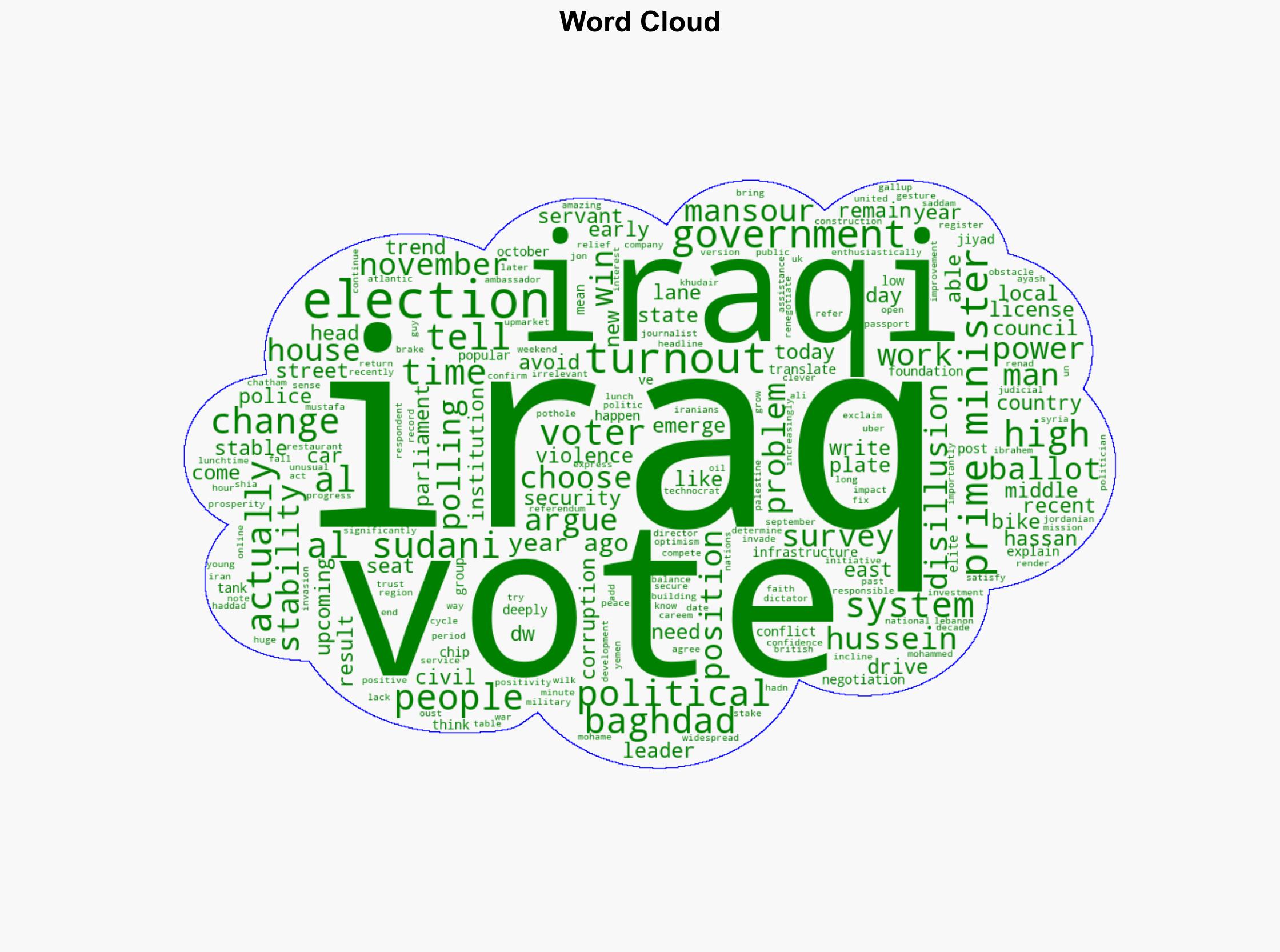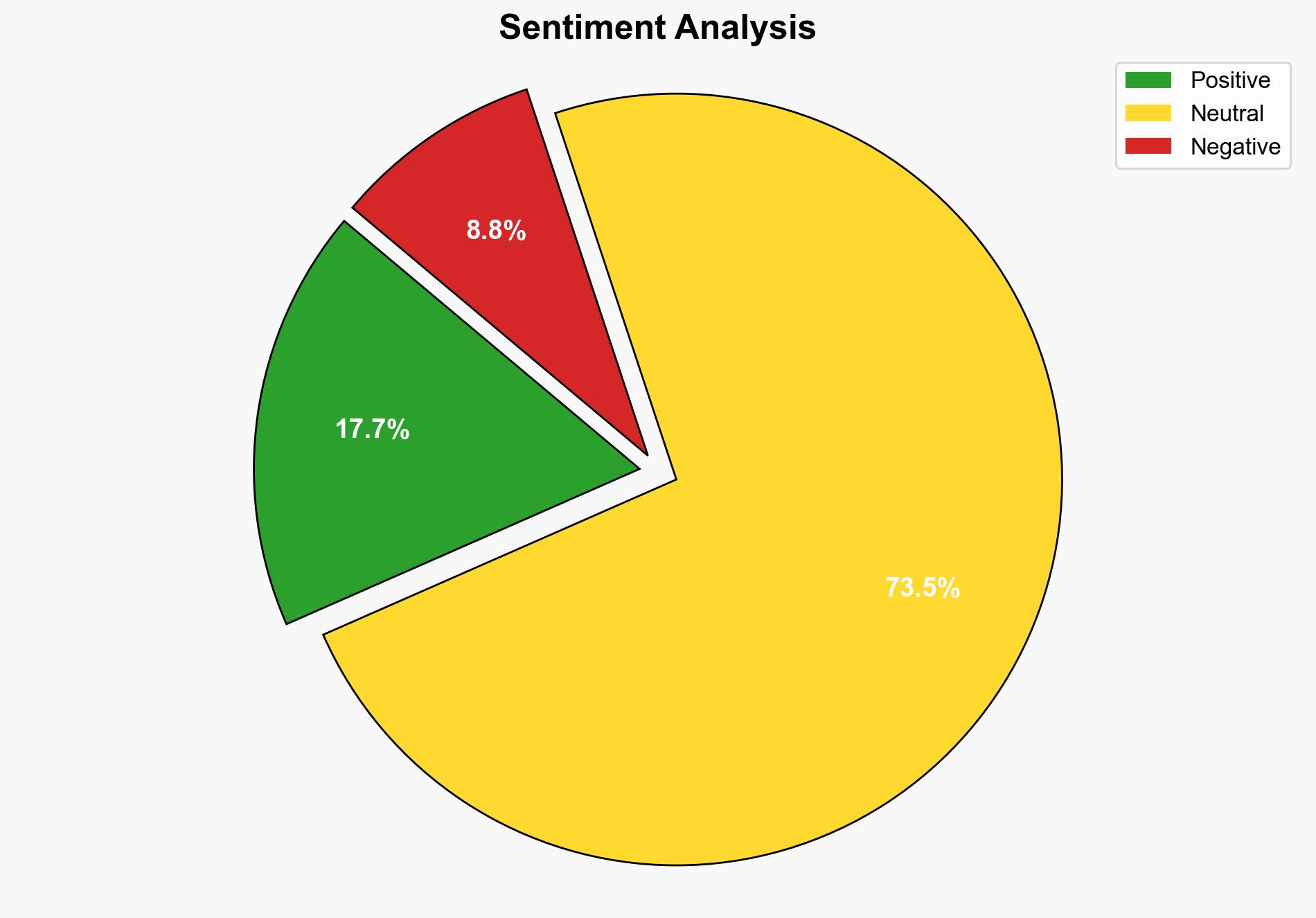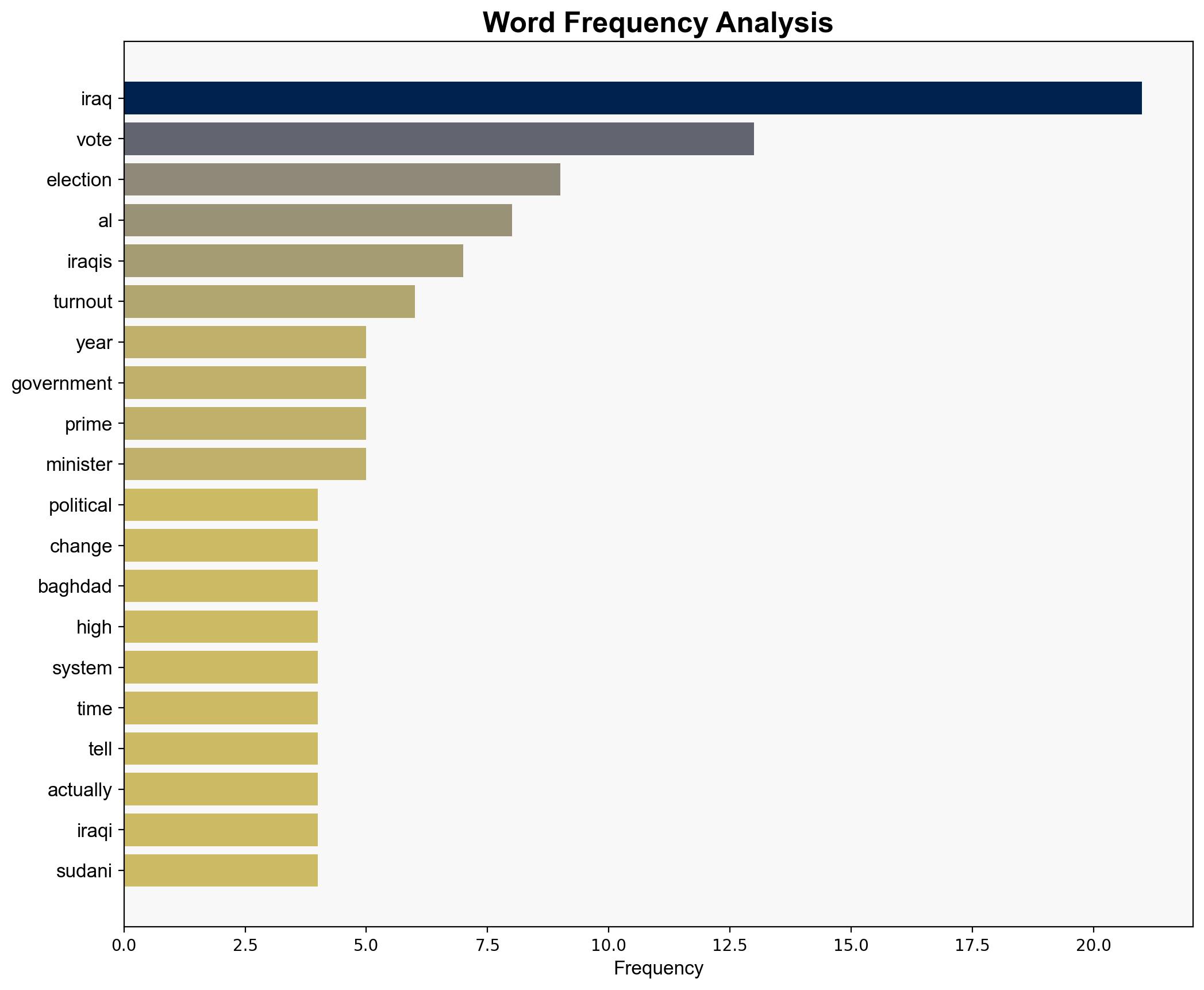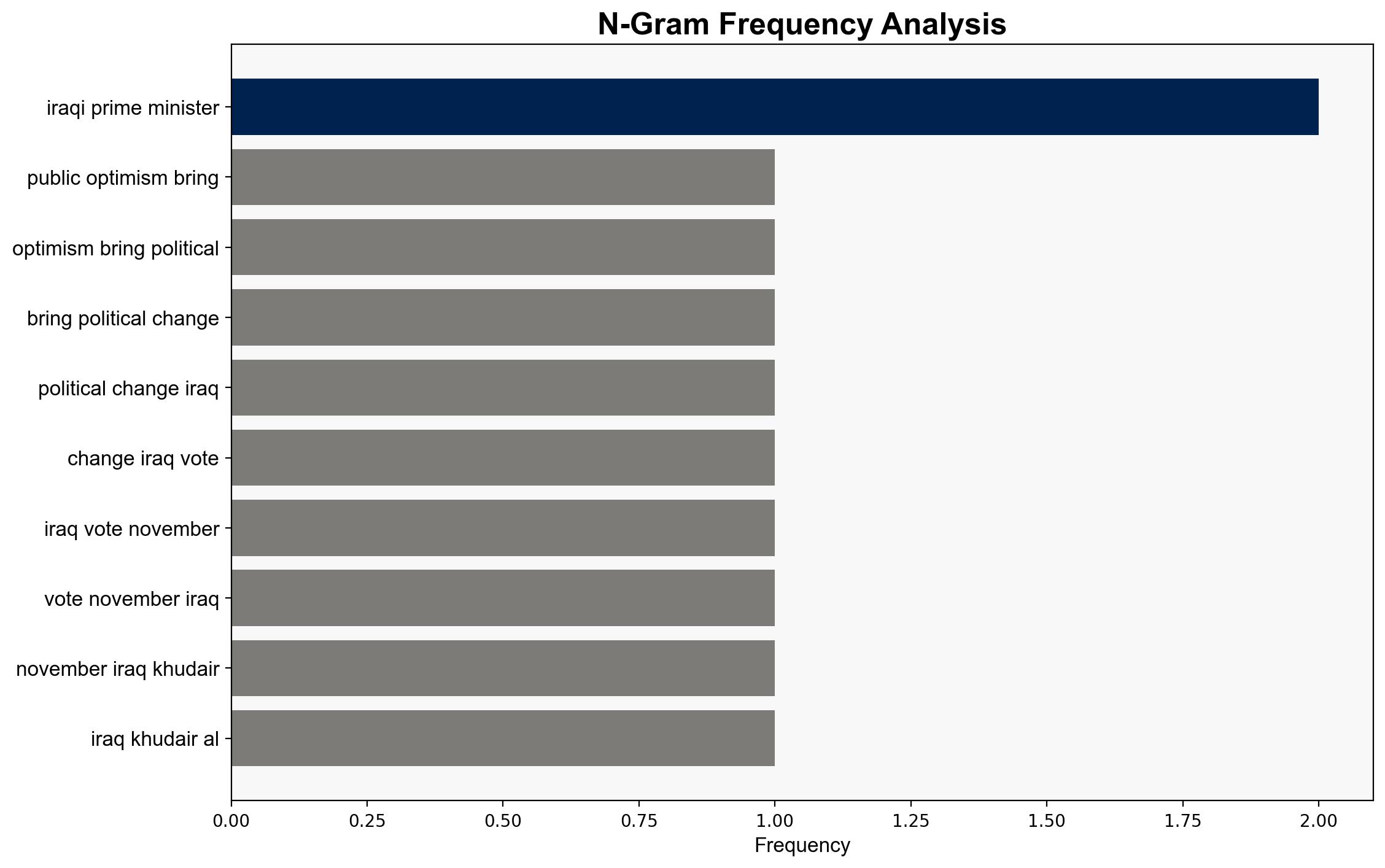Iraq elections Will public optimism equal political change – DW (English)
Published on: 2025-11-02
Intelligence Report: Iraq elections Will public optimism equal political change – DW (English)
1. BLUF (Bottom Line Up Front)
Public optimism in Iraq is unlikely to translate into significant political change in the short term due to entrenched systemic issues and elite bargaining dynamics. Confidence level: Moderate. Recommended action: Monitor post-election developments for shifts in power dynamics and potential unrest.
2. Competing Hypotheses
Hypothesis 1: Public optimism and increased confidence in institutions will lead to meaningful political change in Iraq, reflected in higher voter turnout and a shift in political power dynamics.
Hypothesis 2: Despite public optimism, entrenched political elites and systemic corruption will prevent significant political change, maintaining the status quo.
Using ACH 2.0, Hypothesis 2 is better supported. The persistence of corruption and elite bargaining, as well as historical voter disillusionment, suggest limited impact from public optimism alone.
3. Key Assumptions and Red Flags
Assumptions: Hypothesis 1 assumes that public optimism directly influences political outcomes, while Hypothesis 2 assumes that systemic issues outweigh public sentiment.
Red Flags: Over-reliance on polling data without considering historical voter behavior. Potential bias in assuming public optimism translates directly to political engagement.
4. Implications and Strategic Risks
If public optimism fails to yield political change, there is a risk of increased public disillusionment and potential unrest. Continued corruption and elite dominance may exacerbate socio-economic disparities, potentially destabilizing regional security.
5. Recommendations and Outlook
- Monitor post-election developments for signs of unrest or shifts in power dynamics.
- Engage with local stakeholders to support anti-corruption initiatives.
- Scenario Projections:
- Best Case: Increased voter turnout leads to a more representative government.
- Worst Case: Low turnout and continued elite dominance result in civil unrest.
- Most Likely: Incremental changes with limited immediate impact on power structures.
6. Key Individuals and Entities
Khudair Al Ali, Mustafa Hussein, Ibrahem Ayash, Mohammed Shia Al Sudani, Renad Mansour.
7. Thematic Tags
national security threats, political stability, regional focus, governance, public sentiment





